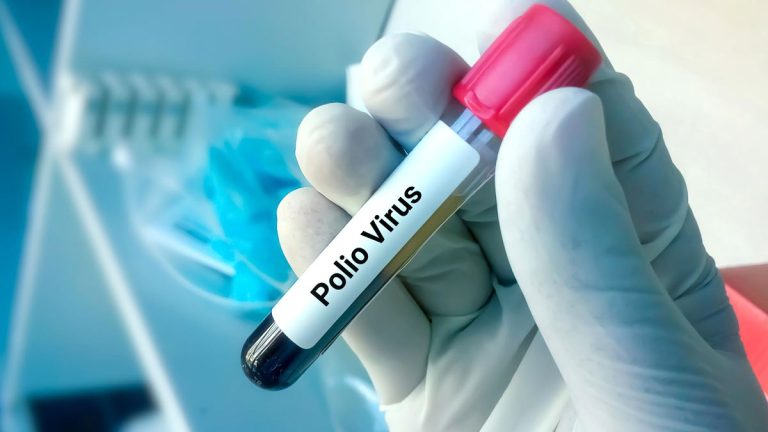The World Health Organization (WHO) says that Rotary International has committed more funds to support Nigeria in its efforts to eradicate all forms of polioviruses, especially the Circulating Variant Poliovirus (cVPV2).
In a statement on the WHO’s WhatsApp page, it said that the new grant, amounting to 14,037,787 dollars, would cover a one-year period to enable the WHO provide technical assistance to the Nigerian government on polio surveillance.
The grant would be to avert a resurgence of wild polio and eradicate cVPV2, which continues to pose a challenge in the country.
The WHO said that while Nigeria achieved the certification of being wild polio-free in August 2020, the nation was currently grappling with the presence of the cVPV2.
Prof. Muhammad Pate, the Coordinating Minister of Health and Social Welfare, underscored the broader impact of supporting surveillance, not only for polio but also for enhancing the country’s ability to combat other infectious diseases.
Pate said that the bigger picture was that it supported surveillance and strengthening the country’s ability to anticipate, investigate and respond to other infectious diseases that could threaten national and global security.
“We assure you that the resources will be utilised for the overall goal of enhancing health security in Nigeria,” he said.
Pate said that Rotary International had been a viable partner to Nigeria in its quest to eradicate all forms of polio disease and ensure all eligible children received immunisation against the childhood disease.
“As for this new grant, Rotary Foundation Trustees at their January 2023 meeting approved a grant of 2,675,000 dollars to support polio eradication in Nigeria through WHO for surveillance.
“An additional grant of 4, 514, 785 dollars was approved by Rotary Foundation Trustees dated October 2023 for surveillance by WHO, and finally on Jan. 10, 2024 yet another grant was approved to the sum of 6,848, 002 dollars for technical assistance.
“All of these grants are of a one-year duration and must be effectively and fully utilised between March 31, 2024 and 2025.
“The initiative by the Rotary International to immunise all the children of the world against polio in 1985 led to the creation of the Global Polio Eradication Programme (GPEI) and this remains Rotary’s highest programmatic priority,” Pate said.
According to him, to date, Rotary has contributed more than 1.5 billion dollars to end polio, including more than 500 million dollars in grants to support polio eradication activities in Nigeria in the last ten years.
The minister added that Rotary had also contributed countless volunteer hours by its members and those of the Rotaract Clubs in Nigeria.
Dr Walter Mulombo, the WHO Country Representative in Nigeria, said that Rotary remained a core partner and founding leader for the GPEI efforts globally.
Mulombo said that through strong partnerships, the government and its partners, including WHO, had sustained the “Zero Wild Polio” status in Nigeria, where it was last detected in 2016.
According to him, enormous efforts have gone into containing the cVDPV2 variant strain; however, poliovirus surveillance data has also shown that the virus continues to circulate in some states in the North-West zone.
He said that the organisation would work closely with the National Primary Health Care Development Agency (NPHCDA) and state governments, especially in the North-West and high-risk states.
Mulombo noted that WHO’s commitment was as recommended by the 40th Executive Review Committee to reach the finish line by the end of 2024.
“WHO as implementing partners for the polio funding will deploy the resources to eradicate polio, support the polio surveillance activities across the country.
“The resources would be used to strengthen health systems, so they are better able to respond to emerging health threats,” he said.


